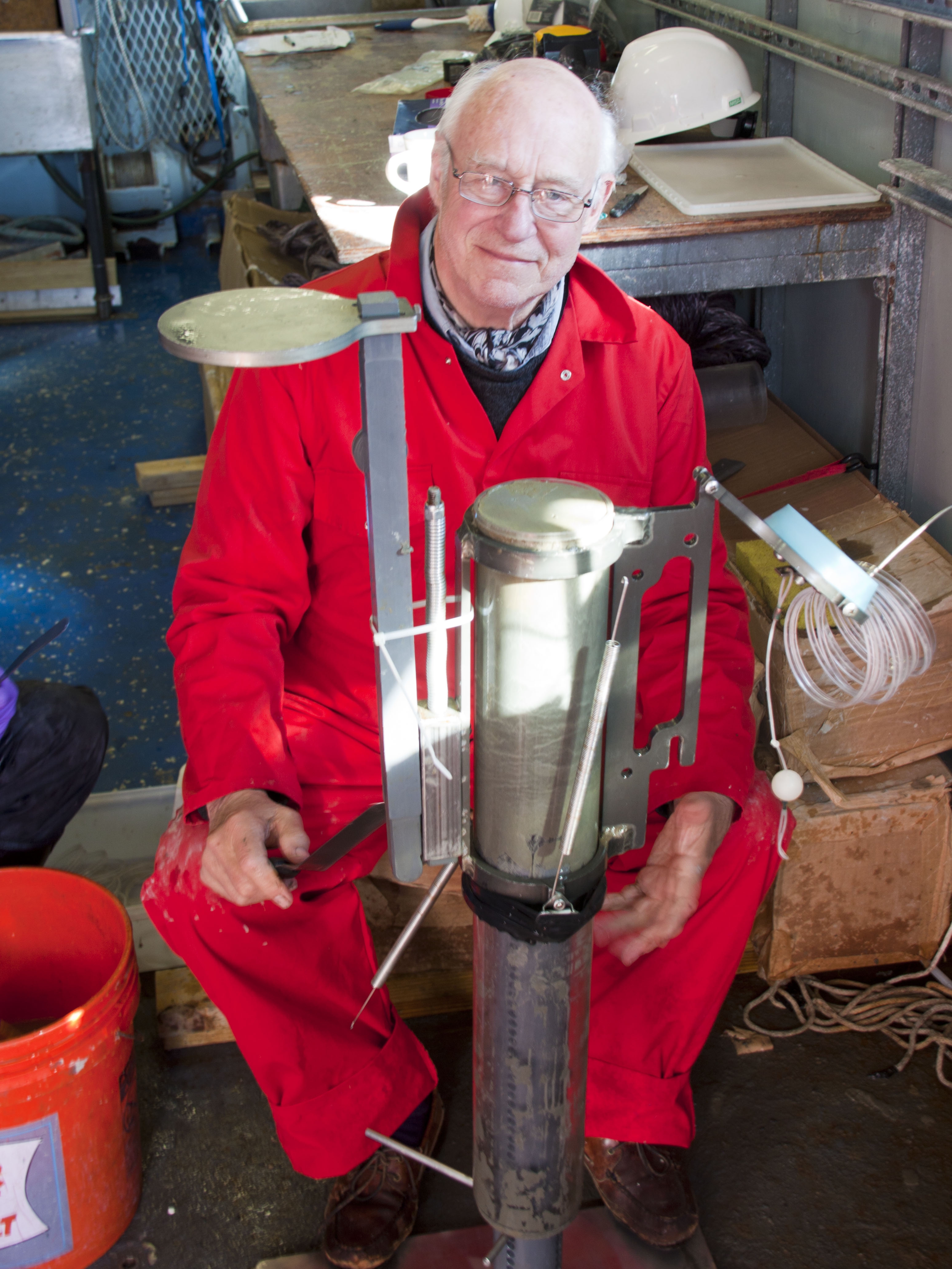'Exceptional’ climate change academic from St John’s awarded rare honour
Election to Fellowship is ‘icing on the cake’
A marine geologist from St John’s has been made a Fellow of the American Geophysical Union (AGU), a rare honour from a leading international organisation that promotes discovery in Earth and space science for the benefit of humanity.
Professor I Nick McCave is an expert in deep sea sedimentation and the geological record of climate change in the deep ocean, and is one of 62 new AGU Fellows elected for ‘exceptional’ contributions to Earth science. Less than 0.1 per cent of the AGU’s 60,000-strong membership are made Fellows every year.
AGU is a non-profit scientific organisation, based in Washington DC, which studies the causes and impacts of climate change and finds ways to mitigate and adapt to them to try to preserve the health of our planet. Professor McCave is College Supervisor in Geological Sciences, Emeritus Woodwardian Professor of Geology and Fellow of St John’s. His own research involves finding out how modern deep circulation shapes the sea bed and controls the distribution of sediment types, grain-sizes and bedforms, with the deeper objective of understanding the impact of climate change on the deep sea, and vice-versa.

An AGU member for about 30 years, one of his first research papers was published in an AGU journal 50 years ago. In his early career through to the 1990s, Professor McCave worked on the interactions between deep ocean currents and the seabed, which produces clouds of sediment that are swept downstream and deposited in great piles, called drifts. He said: “I went on to study the historical record of the ocean circulation in those drifts and devised a method using particle size properties of the sediments to determine changes in the vigour of the deep sea circulation that are intimately related to changes in climate.”
Professor McCave obtained his PhD from Brown University and in the 1980s spent 10 years as an Adjunct Scientist at the Woods Hole Oceanographic Institution in Massachusetts, and took sabbaticals at Oregon State University, Massachusetts Institute of Technology and Columbia University. He added: “So this is something of the icing on the cake. I owe a great deal to my friends and colleagues in the USA.”
Robin Bell, President of the AGU, and LaToya Myles, Chair of the Honours and Recognition Committee, said in an official statement: “The members of this year’s class of Fellows have made exceptional contributions in our Earth and space sciences community through breakthrough, discovery, or innovation in their disciplines. Since 1962, AGU has elected fewer than 0.1 per cent of members to join this prestigious group of individuals.
“Thanks to their dedication and sacrifice, AGU Fellows serve as global leaders and experts who have propelled our understanding of geosciences. We are confident that they will remain curious and relentlessly focused on answers as they continue to advance their research, which pushes our boundaries of knowledge to create a healthy planet and beyond.”
A virtual ceremony to celebrate the 2020 class of Fellows and other honour recipients will be held on 9 December.
Published: 25/11/20